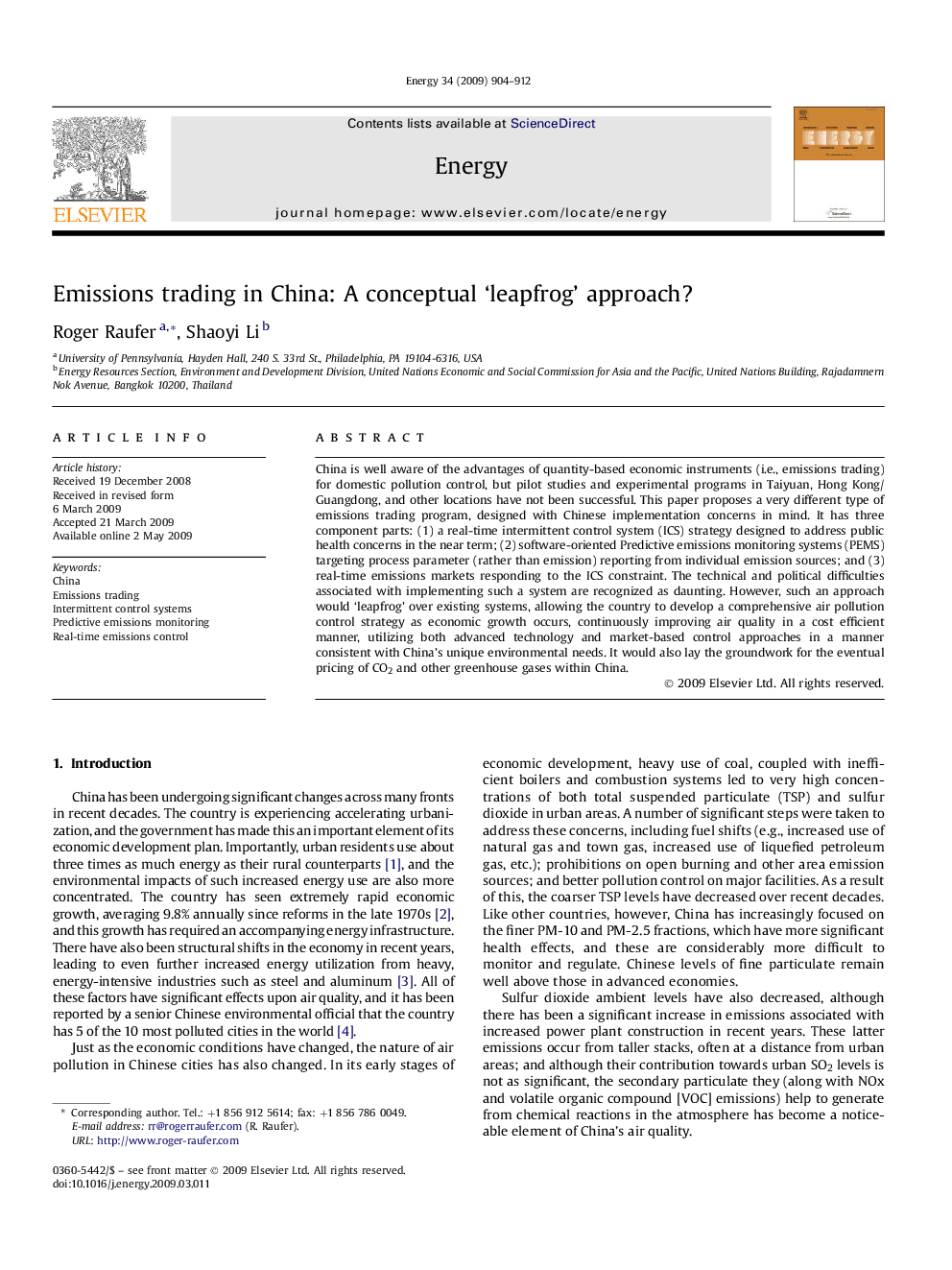| Article ID | Journal | Published Year | Pages | File Type |
|---|---|---|---|---|
| 1735391 | Energy | 2009 | 9 Pages |
China is well aware of the advantages of quantity-based economic instruments (i.e., emissions trading) for domestic pollution control, but pilot studies and experimental programs in Taiyuan, Hong Kong/Guangdong, and other locations have not been successful. This paper proposes a very different type of emissions trading program, designed with Chinese implementation concerns in mind. It has three component parts: (1) a real-time intermittent control system (ICS) strategy designed to address public health concerns in the near term; (2) software-oriented Predictive emissions monitoring systems (PEMS) targeting process parameter (rather than emission) reporting from individual emission sources; and (3) real-time emissions markets responding to the ICS constraint. The technical and political difficulties associated with implementing such a system are recognized as daunting. However, such an approach would ‘leapfrog’ over existing systems, allowing the country to develop a comprehensive air pollution control strategy as economic growth occurs, continuously improving air quality in a cost efficient manner, utilizing both advanced technology and market-based control approaches in a manner consistent with China's unique environmental needs. It would also lay the groundwork for the eventual pricing of CO2 and other greenhouse gases within China.
